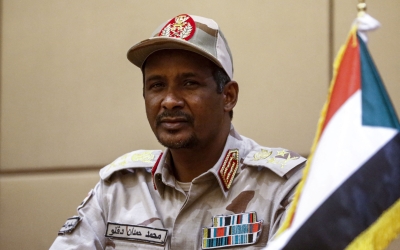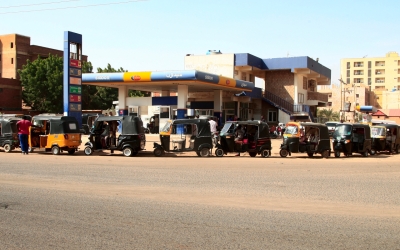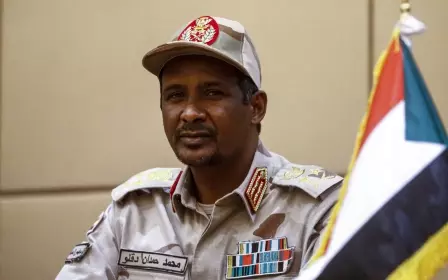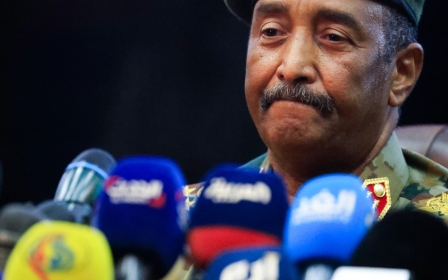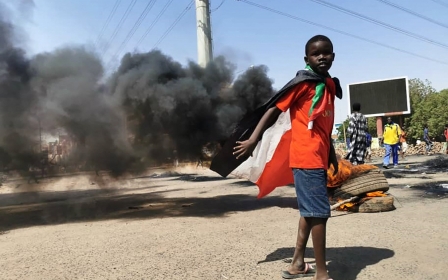Sudan coup: Pressure mounts on military leader to end crisis
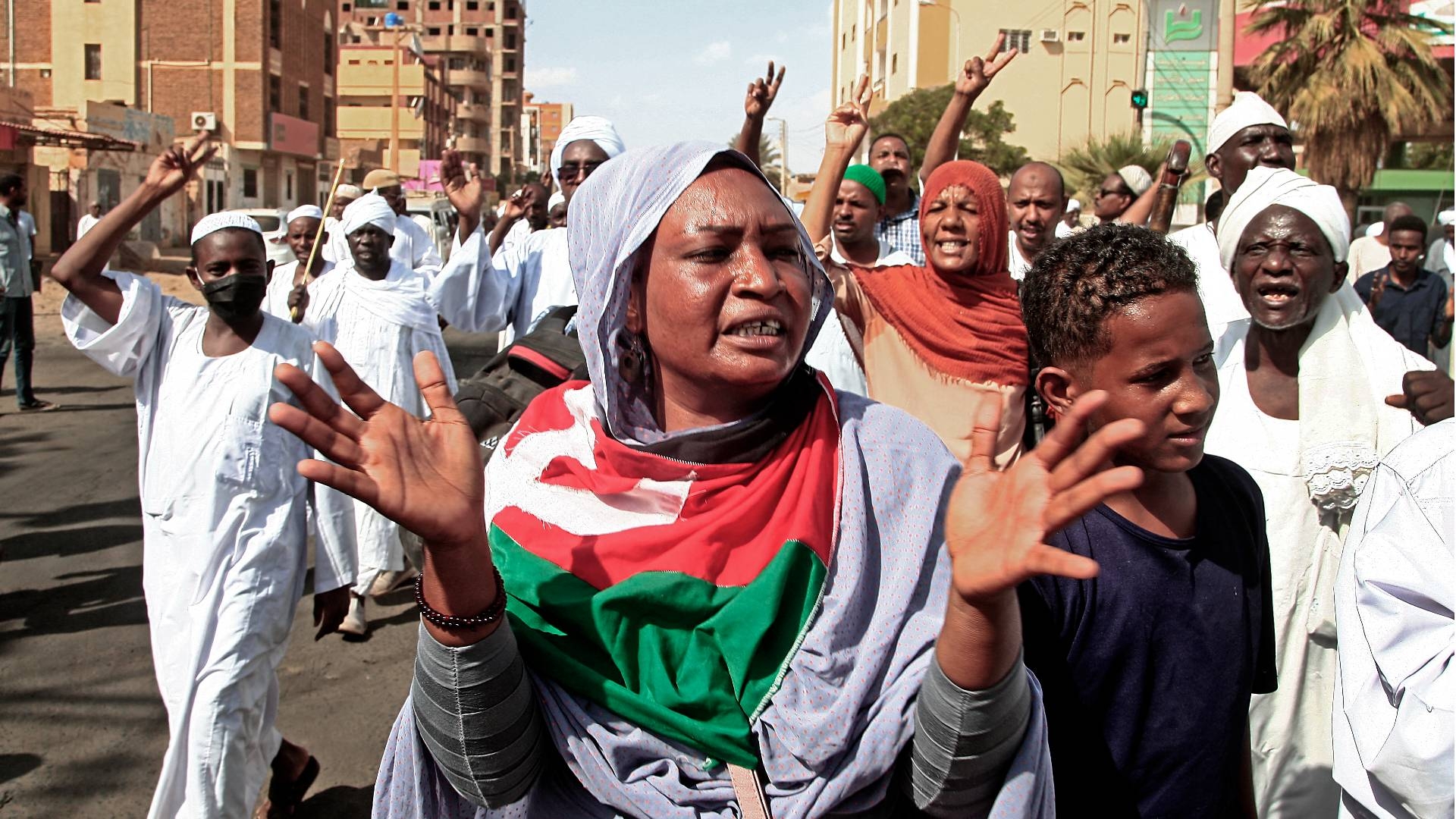
Efforts are underway to settle the political crisis in Sudan, days after the armed forces seized power and dissolved the transitional government, sources have told Middle East Eye.
International pressure has been mounting on coup leader General Abdel Fattah al-Burhan to reverse course, with western nations cutting off hundreds of millions of dollars in desperately needed aid.
Since Monday's military coup, Burhan has moved to crack down on his opponents with the military and the paramilitary Rapid Support Forces launching a widespread detention campaign against activists, journalists, and officials and supporters of the overthrown civilian government.
At least 11 protesters have been killed in clashes with security forces so far this week, and residents say they fear a full-blown crackdown.
Opponents of the power grab have called for mass protests on Saturday under the slogan "Leave!"
With the army facing pressure at home and from abroad, sources told MEE that a technocratic prime minister could be announced within a week, but the door was also open for Prime Minister Abdalla Hamdok to return and form a new government.
In a speech on Thursday, Burhan hinted that Hamdok had been offered a chance to return as prime minister.
"Until this night, we were sending him people and telling [Hamdok]... complete the path with us," Burhan said.
"We told him that we cleaned the stage for you... he is free to form the government. We will not intervene in the government formation."
Hamdok, an economist and former senior UN official, was initially held at Burhan's residence after soldiers rounded up the government on Monday. He was allowed to return home under tight security on Tuesday.
'Coup was a symptom of more fundamental problems'
Hamdok's allies say he has refused requests by the coup leaders to cooperate and has demanded civilian power-sharing be restored and arrested ministers freed.
"We have nothing to do with what Burhan said [regarding] the appointment of Hamdok," a source close to the prime minister told MEE.
"The PM is not in a position to negotiate or accept anything because he is under arrest," said the source, who requested anonymity because he was not authorised to talk to the media.
Meanwhile, a source with the UN told MEE that the United Nations Integrated Transition Assistance Mission in Sudan, along with several international envoys, had offered to facilitate a political settlement towards restoring the transitional government during a meeting with Burhan.
Amid efforts to restore the transitional government, the alliance of resistance committees has insisted that Saturday's planned million-man march would proceed.
The resistance committees, which include more than 50 grassroots organisations, are demanding full civilian rule and an end to the civilian-military partnership.
"Our first demand is to stop any kind of probable compromise of negotiations with the army. The army has to only hand over the power to the civilians," the committees said in a statement.
"We also want to reform the security sector, dissolve the militias and prevent the associates of the old regime from getting any representation in the coming government."
Mubarak Ardol, a leading member of the Forces of Freedom and Change (FFC), an anti-Bashir faction, said meetings would be held on Friday and continue in the coming days to address the crisis.
"We have met the leadership of the FFC faction, including the National Umma Party and others, and will meet them today in order to continue with the talks," Ardol said at Friday's press conference.
Cameron Hudson, a fellow at the Atlantic Council and former US diplomat, told MEE that the intervention of the international community was aimed at avoiding more bloodshed.
"There is an effort to try to walk back this coup and return the transition to the path it was on. However, that ignores the fact that the coup was merely the symptom of the much more fundamental problems with the transition," he said.
"Walking back the coup might relieve some of the political pressure, but it does not resolve the underlying issues that were undermining the transition."
Middle East Eye delivers independent and unrivalled coverage and analysis of the Middle East, North Africa and beyond. To learn more about republishing this content and the associated fees, please fill out this form. More about MEE can be found here.


